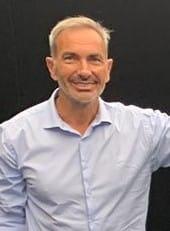Since the 1980s, after decades without global warfare, and having consolidated two well-defined geopolitical axes, a global integration process began in which companies promoted denationalization in the exercise of their activities, i.e. expanded production and marketing sites beyond the borders of the parent houses or locations of origen.
During the 1990s, these movements multiplied and accelerated forming global corporations that integrate supply, production, distribution and marketing processes in multiple countries, hence their denomination. multinational organizations.
Concepts as the international division of labour, which raise that there are nations with better business conditions to perform certain tasks have settled as essential aspects to identify where to locate a plant or start an exploration. In general, the advantages of companies are related to labor disadvantages. There were examples of human exploitation in Southeast Asian countries, or even China in those times.
The tax incentives They were also part of the variables to take into account to define which role will occupy each country in a world whose economy has global reach.
Obviously, topics such as purchasing power and educational level of the population, Infrastructure capacity of each place or legal certainty and regulatory framework For each activity they are also important and influential to determine the profile of the investments distributed among the different countries.
This process that takes more than 40 years from its beginnings has evolved into a model of specialization and aggregation of distributed value globally, in which, in many cases, goods are produced in different jurisdictions, that is, in no case, a fully finished product, but parts that integrate and complete elsewhere.
Already, during the years of the Covid-19 pandemic and now, accentuated by the measures of blocking and confiscation between Russia and the part of the rest of the world that questions it, reveal how dependent we are on globalization.
The production of goods and services in the world has naturally concentrated in the cheapest and most efficient places.
A short time ago we did not pay much attention to the risks that China produces all the world's shaves or that Taiwan will make all semiconductors. But when a pandemic or a geopolitical conflict breaks down a supply chain, the efficiencies obtained by a globalized economy become weaknesses, dependencies and risks.
Ukraine and Russia combine around 30% of world wheat exports. The Ukrainian government banned the export of wheat and other basic foods to meet the needs of the population in critical food products.
But it's not just wheat. Fertilizers, phosphate and potassium are also key exports of Russia, which has ceased to export since it invaded Ukraine.
The fertilizer went from $200/ton to $1,500/tonnes.
The world has a 90-day food production cycle. If we stop producing food, we'd be about 90 days of food before we eat them. So we have about 90 days before the full effect of these changes on the markets begin to manifest.
Perhaps we have let our global interdependence grow too.
From the point of view of information and new technologies, similar things happen.
To control the flow of information, Putin fell "una digital iron curtain” around the Internet in Russia.
Meta is now “an extremist organization”, and all your products are blocked (Facebook, Instagram, Whatsapp).
But also, many Western companies are voluntarily withdrawing from Russia (Apple, Microsoft, TikTok, Netflix, etc.)
Ukraine asked ICANN to remove the websites ".ru" Internet. Although the Internet is a decentralized technology, we should still agree with the standards we use to communicate data, and ICANN is the organization that provides this coordination.
The DNS routing system, the spine of the Internet, is fragile and is potentially subject to the manipulation of the American government. It's literally, controlled by fourteen people who have seven key games.
This puts into discussion fundamental themes such as are lInternet neutrality, for example. When the relevant actors are some of the largest nation-states in the world, the legitimacy of the Internet itself is being questioned.
However, the questioning about the means in which globalization has been supported is not exclusively in the communications network, the dollar has a central role in this story, as the dollar is the main tool that the US has of power and control, used by most global companies to homogeneize the accounts among the countries in which they have operations. The world has just seen how the US freezes the Central Bank of Russia, something that questions the guarantees that the dollar is a good place to store savings, further encouraging countries to find ways to store wealth outside the dollar system.
It is likely that the next decade highlights that we have overvalued globalization, in fact, it is likely that it serves as a culture cult so that it can feel.produces a paradigm shift, from liberal cooperation models to other conservative protectionisms.
The recent history highlights the failures of nations as administrators of opportunities among them, the same as the companies that took advantage of globalization to improve their productive conditions by leveraging the asymmetries among nations.
Is it time for people to coordinate with us, without intermediaries, politicians, entrepreneurs, institutions like central banks or sovereign currencies?
In addition to the productive and economic aspects, globalization occurred at times when there was no means of processing independent global payments, but that belong or are part of centralized power structures.
Blockchain-based digital assets have emerged to complete this process, as global currencies can distribute global wealth and equip countries' circumstances.
There is no Argentine bitcoin, or an American Bitcoin or a Russian, is always the same.


Comments